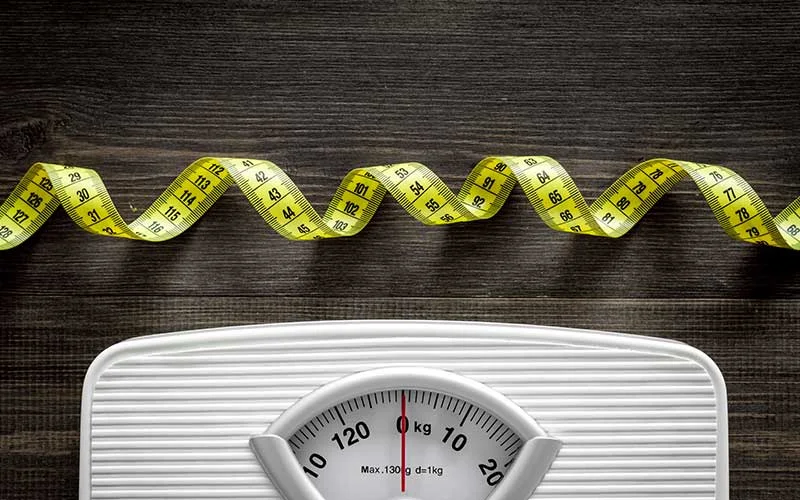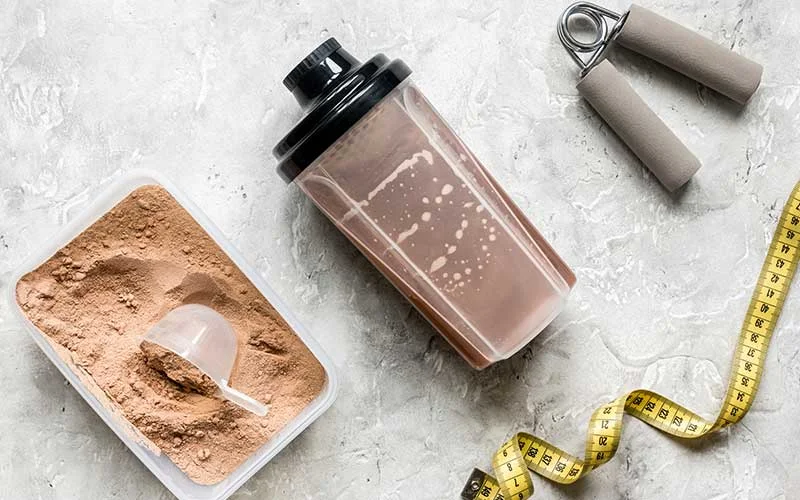Are you interested in exploring new approaches to health and fitness? If so, you’ve likely encountered the trending concepts of intermittent fasting and meal replacement shakes.
When used effectively, these two strategies offer a powerful combination that can yield impressive results. This article will guide you through how meal replacement shakes can fit seamlessly into this eating pattern of intermittent fasting. If you’re unfamiliar with this fasting method, let me explain what intermittent fasting is.
What is Intermittent Fasting?
Intermittent fasting is a routine of eating that involves switching between times when you eat and times when you don’t eat (fast). Instead of worrying about what foods to eat, it’s all about when you eat them. There are different methods to do intermittent fasting, but the most standard method is the 16/8 method. With this technique, you fast for 16 hours and then have an 8-hour window to eat your meals.
For example, you might skip breakfast, start eating around noon, and finish your last meal by 8 p.m. This means you’re fasting for 16 hours straight every day. Some people say they feel better and more energetic during the fasting hours.
At first, it might be tough as your body gets used to not eating for long periods, but usually, you won’t feel too hungry. You can drink water, tea, coffee, and other drinks without calories during fasting. Taking supplements is generally OK during fasting as long as they don’t contain any calories.
But remember, everyone’s experience can differ, so finding an approach that fits your lifestyle is essential. Talking to a healthcare professional is always good if you have any concerns.
Intermittent Fasting and Weight Management

The capacity of intermittent fasting to accelerate fat burning and aid in weight loss is a significant health benefit. Because intermittent fasting doesn’t call for rigorous food measurement and tracking of calories and grams ingested, many people find it more convenient than standard diets. Studies show intermittent fasting can lead to the same level of weight loss as long-term restrictive diets, although not requiring calorie counting.
Due to intermittent fasting’s ability to make your body burn more fat for fuel, you can lose weight quickly. Your body looks for alternative energy sources after the glycogen is used up, such as fat cells, which it then breaks down to provide energy for your body.
A study examined the effects of intermittent fasting on body composition in 27 different studies and discovered that, on average, it reduced body weight by 1–13% over six months.
Using Meal Replacement Shakes During Intermittent Fasting
An efficient weight-loss plan might include both intermittent fasting and meal replacement shakes. The idea is to select a shake that adheres to your dietary choices and calorie targets. Additionally, pay attention to how you feel after taking the shake because some people may become hungry or experience digestive problems immediately.
The nutritional content and components are crucial when selecting a meal replacement shake, especially in the context of managing sugar cravings. Opting for protein and fiber-rich shakes is beneficial as they promote a feeling of fullness and prolonged satisfaction. It’s also important to steer clear of shakes that are high in sugar or contain artificial sweeteners, as these can potentially trigger more cravings and lead to fluctuations in blood sugar levels.
Moreover, meal replacement drinks shouldn’t be utilized as a long-term weight-loss strategy. For long-term success, it’s crucial to concentrate on creating healthy food habits and a dependable exercise program, even though they can be useful short-term tools. Developing a specialized weight loss plan that includes meal replacement shakes and intermittent fasting can also benefit from seeking the advice of a licensed dietitian or other healthcare professional.
Benefits of Combining Meal Replacement Shakes with Intermittent Fasting

Combining meal replacement shakes with intermittent fasting can be an effective and convenient approach to achieving health and weight management goals. Intermittent fasting involves cycling between periods of eating and fasting, while meal replacement shakes are beverages designed to provide essential nutrients, typically in a low-calorie form. When used together, they can offer several benefits:
Weight Management: Meal replacement shakes help control calorie intake, supporting weight loss during intermittent fasting.
Nutrition: Despite fewer calories, shakes provide essential nutrients like proteins, vitamins, and minerals.
Convenience: Quick and easy to prepare, perfect for busy schedules and limited meal options.
Sustained Energy: Nutrient-rich shakes maintain energy levels, preventing hunger and crashes.
Portion Control: Pre-portioned servings help prevent overeating during eating periods.
Meal Replacement Shakes: Nutritional Composition
Understanding the nutritional composition of meal replacement shakes is essential to meet your dietary needs and accomplish your goals. Find a product that is perfect for you by reading the labels.
Calories: The calorie count in meal replacement shakes might fluctuate based on the brand and ingredients used, usually 200 to 400 calories per serving.
Protein: Protein is essential in tissue growth and repair, making it a key macronutrient in these smoothies. Most meal replacement options provide 15 to 30 grams of protein per serving.
Carbohydrates: The body uses carbs as its main source of fuel and energy. Meal replacement shake servings typically contain 20 to 40 grams of carbohydrates.
Fat: Healthy fats are required for efficient nutrition absorption and hormone synthesis. Meal replacement shakes normally contain 5 to 15 grams of fat per serving.
Fiber: Look for meal-replacement shakes that provide at least 5 grams of fiber per serving to aid digestion and encourage a sense of fullness.
Vitamins and Minerals: Many meal replacement drinks are fortified with key vitamins and minerals, helping you efficiently satisfy your daily nutrient requirements.
Scientific Research and Evidence
The combination of meal replacement shakes and intermittent fasting is still an area where scientists are learning more. There haven’t been many studies specifically looking at this mix yet. However, separate studies on meal replacement shakes and intermittent fasting have given us some useful information.
Intermittent fasting and meal replacement shakes work hand in hand to help you lose weight and become healthier in many ways. They achieve this by lowering calorie intake and giving your body essential nutrients to support its natural repair and rejuvenation processes.
Research shows it can improve how your body handles sugar, reduce inflammation, and lower the risk of chronic conditions like heart disease and cancer. Meanwhile, meal replacement shakes provide a convenient and effective way to ensure your body gets all the necessary nutrients, even while cutting down on calories.
Combining intermittent fasting and meal replacement shakes in a healthy lifestyle can help you achieve your weight loss goals and enhance your overall well-being. It’s a practical approach to improving your health and feeling better in the long run.
Choosing the Right Meal Replacement Shakes for Intermittent Fasting
Try to choose meal replacement shakes for intermittent fasting that are good in nutrients but low in calories. Protein drinks are a popular option because they may keep you feeling full and satisfied while providing your muscles with the essential nutrients they need to grow and recover. Some shakes contain fiber, vitamins, and minerals to keep your body healthy and are developed specifically for weight loss.
Pay attention to the shake’s ingredients as well. Shakes with natural ingredients are preferable to those with artificial sweeteners or additional sugars. While some smoothies may contain caffeine or other ingredients that provide energy while fasting, they might not suit everyone. Speaking with a healthcare practitioner before attempting any new diet or supplements is a good idea. They can assist you in making the best choices for your well-being.
Safety Considerations and Precautions
Here are some safety considerations to keep in mind when choosing meal replacement shakes for intermittent fasting:
- Speak with a healthcare professional before starting intermittent fasting.
- Choose shakes with balanced nutrition and avoid high sugar or artificial additives.
- Avoid very low-calorie shakes to prevent nutrient deficiencies.
- Read ingredients to avoid allergens or substances you’re sensitive to.
- Prefer shakes made from whole food ingredients.
- Be aware of serving sizes and calorie intake.
- Stay hydrated by drinking plenty of water.
- Use shakes as supplements, not replacements for all meals.
- Don’t rely solely on shakes for extended fasting. Include regular whole-food meals in your diet.
FAQs
Can I Consume Meal Replacement Shakes During the Fasting Period of Intermittent Fasting?
You can have a protein drink during intermittent fasting but only during the eating window. You are not allowed to consume any food or beverages (apart from water) after the fasting period begins because doing so would break your fast. Because they include a lot of calories, protein shakes are one of the main reasons they can end your fast.
Will Consuming Meal Replacement Shakes Break My Fast And Negate the Benefits of Intermittent Fasting?
No, and yes. Protein shakes contain amino acids that boost insulin levels, breaking a fast. If done at the right window, they can still be a part of your intermittent fasting plan.
Can Meal Replacement Shakes Aid in the Transition to Intermittent Fasting?
Protein shakes are an excellent method to quickly and easily meet your daily protein goal while intermittent fasting. If you are also in a calorie deficit or have a limited window for eating, as with 20/4 intermittent fasting, this is crucial.
What Should I Look for in a Meal Replacement Shake for Intermittent Fasting?
It’s important to choose meal replacement shakes for intermittent fasting that are high in nutrients and low in calories. Protein shakes are popular because they help you feel full and satisfied while giving your body the vital amino acids it needs for muscular growth and repair.
How Do Meal Replacement Shakes Affect Hunger and Satiety During Intermittent Fasting?
Look for options that are high in nutrients and low in calories when selecting a meal replacement smoothie for intermittent fasting. Popular choices include protein smoothies, which offer vital amino acids for muscle growth and repair while keeping you full and satisfied.
Final Thoughts
Meal replacement shakes are ideal for individuals practicing intermittent fasting, offering quick and convenient nutrition. They provide a simple way to break your fast, especially for those with busy schedules.
We’ve already provided the key details, so you can make an informed choice about incorporating these shakes into your intermittent fasting routine. Keep our advice in mind, and you’ll be all set. If you haven’t already, select your meal replacement shake before you start.
 | 310 SHAKE
| 9.9 |
 | KACHAVA
| 9.8 |
 | PREMIER PROTEIN
| 9.8 |
 | ATKINS
| 9.5 |
 | GOLDEN OF LIFE
| 9.4 |
 | ORGAIN
| 9.3 |
 | SLIMFAST
| 9.2 |









